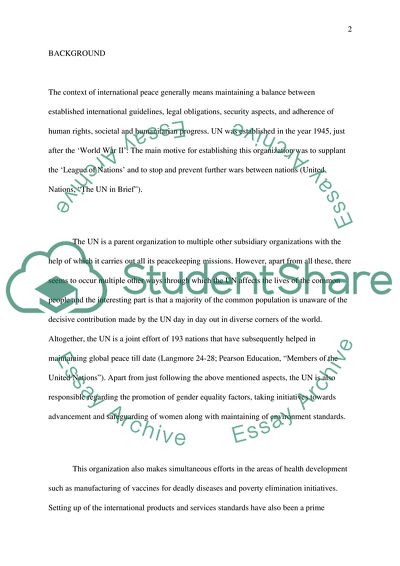Cite this document
(Can International Institutions Like the UN Effectively Promote Peace Term Paper Example | Topics and Well Written Essays - 3000 words, n.d.)
Can International Institutions Like the UN Effectively Promote Peace Term Paper Example | Topics and Well Written Essays - 3000 words. https://studentshare.org/politics/1827594-can-international-institutions-like-the-un-effectively-promote-peace-use-historical-examples-to-support-your-position
Can International Institutions Like the UN Effectively Promote Peace Term Paper Example | Topics and Well Written Essays - 3000 words. https://studentshare.org/politics/1827594-can-international-institutions-like-the-un-effectively-promote-peace-use-historical-examples-to-support-your-position
(Can International Institutions Like the UN Effectively Promote Peace Term Paper Example | Topics and Well Written Essays - 3000 Words)
Can International Institutions Like the UN Effectively Promote Peace Term Paper Example | Topics and Well Written Essays - 3000 Words. https://studentshare.org/politics/1827594-can-international-institutions-like-the-un-effectively-promote-peace-use-historical-examples-to-support-your-position.
Can International Institutions Like the UN Effectively Promote Peace Term Paper Example | Topics and Well Written Essays - 3000 Words. https://studentshare.org/politics/1827594-can-international-institutions-like-the-un-effectively-promote-peace-use-historical-examples-to-support-your-position.
“Can International Institutions Like the UN Effectively Promote Peace Term Paper Example | Topics and Well Written Essays - 3000 Words”. https://studentshare.org/politics/1827594-can-international-institutions-like-the-un-effectively-promote-peace-use-historical-examples-to-support-your-position.


